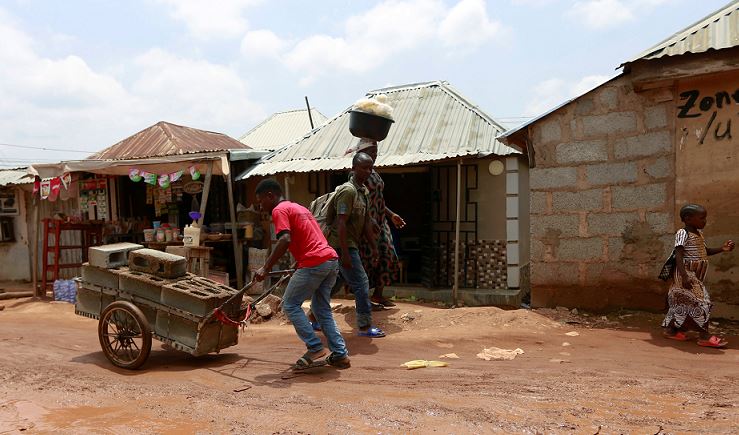
COVID-19 impact in Nigeria could impoverish 5 million people: World Bank

Nigeria’s COVID-19 outbreak may push some five million people into poverty as the effects of the disease batters the West African country’s economy, the World Bank said on Thursday.
The shock caused by the pandemic, compounded by a global oil collapse, has hit Nigeria hard, especially considering the country is Africa’s largest economy mainly because it is the continent’s top crude producer.
According to Reuters, Nigeria also has the highest number of people living in extreme poverty in the world, and has not recovered from another recession in 2016.
The World Bank forecasts Nigeria’s economy will shrink 3.2-7.4% this year, depending on the severity of the COVID-19 outbreak. In a worst case scenario, the recession could continue into 2021 when the economy could contract 2%, it said.
“Today’s unprecedented crisis will require an equally unprecedented response from the entire Nigerian public sector (and) private sector to contain the outbreak and protect the lives and livelihoods of low-income and vulnerable communities,” the Bank said in a report on Nigeria’s economic development.
The 5 million people facing poverty due to COVID-19 come on top of the 2 million the World Bank had previously projected would become impoverished, with the pandemic disproportionately affecting the poor, particularly women.
Overall, 42.5% of Nigerians will be poor – defined as living on less than $2 a day – as of 2020, the bank said.
Nigeria had reported 20,020 COVID-19 infections as of Thursday afternoon, with 542 deaths.
The World Health Organization however fears that Africa is yet to see its peak of the outbreak, which further causes concern in the continent.
In Nigeria, poverty and unemployment are attributed to have caused a rise in violent insecurity.
The country is already battling the Boko Haram militant group which has waged war for over a decade.
To cushion it from the harsh effects of the pandemic, the Nigerian government is in talks with the World Bank and other multilateral lenders to raise $6.5 billion in funding.






